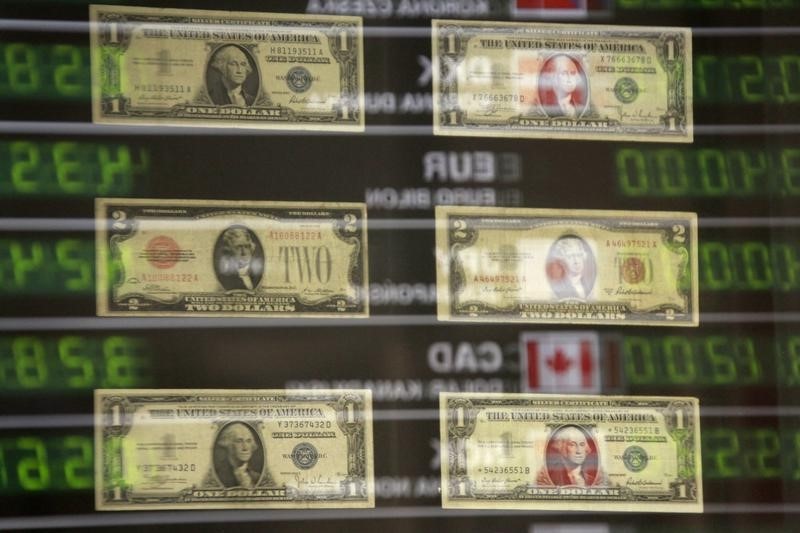* Canadian dollar at C$1.3270, or 75.36 U.S. cents
* Loonie touches its strongest since Feb. 28 at C$1.3270
* Bond prices lower across the yield curve
By Fergal Smith
TORONTO, March 21 (Reuters) - The Canadian dollar strengthened on Tuesday to a three-week high against its U.S. counterpart, boosted by higher oil prices and stronger-than-expected domestic retail sales.
Canadian retail sales rebounded in January with the largest gain in nearly seven years, Statistics Canada said. The 2.2 percent increase topped economists' expectations for a gain of 1.1 percent, while volumes were also robust, up 1.3 percent.
The rise in retail sales confirms the strength of the economy following the recent run of firm domestic data, said Robert Kavcic, senior economist at BMO Capital Markets.
BMO had already raised their forecast for Canada's first-quarter growth to 2.7 percent after robust wholesale trade data on Monday.
Prices of oil, one of Canada's major exports, rose on expectations that an Organization of the Petroleum Exporting Countries-led output cut would be extended beyond June. crude CLc1 prices were up 0.19 percent to $48.31 a barrel.
The U.S. dollar .DXY sunk to a six-week low against a basket of major currencies after centrist Emmanuel Macron's performance in a television debate raised expectations he would win France's presidential election over the far-right's Marine Le Pen, boosting the euro. 9:26 a.m. ET (1326 GMT), the Canadian dollar CAD=D4 was trading at C$1.3270 to the greenback, or 75.36 U.S. cents, stronger than Monday's close of C$1.3354, or 74.88 U.S. cents.
The currency's weakest level of the session was C$1.3365, while it touched its strongest since Feb. 28 at C$1.3270.
Recent signs of long-awaited strengthening of domestic economic growth probably came too late to help Finance Minister Bill Morneau trim yawning annual deficits when the federal budget is released on Wednesday. Finance Minister Charles Sousa requested in a recent letter to the federal finance minister that the government take steps to reduce speculative investment in the housing market. He suggested raising the capital gains inclusion rate of 50 percent on the sale of residential housing that does not qualify for the principal residence exemption.
Canadian government bond prices were lower across the yield curve, with the two-year CA2YT=RR down 5 Canadian cents to yield 0.82 percent and the 10-year CA10YT=RR falling 31.5 Canadian cents to yield 1.765 percent.
Canada's inflation report for February is due on Friday. ECONCA
